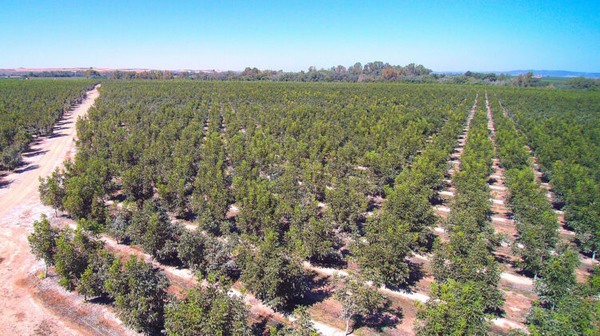As part of Fruit Attraction, Spain's First Walnut and Pecan Congress, organized by Asociafruit and Fepex, will be held the day before the fair, on October 7.
The event will have four presentations and a round table discussion. In the first presentation, Alejandro Lorca, MAPA's fruit, vegetable, and viticulture deputy general director, will analyze the evolution of the cultivation and consumption of walnuts and pecans in Spain and Europe. Then, Vittorio Bianchini, walnut technical advisor at EasyNut Technology and general manager at Frunut Spa, will address the situation and challenges of walnut cultivation at the international level.

In the third presentation, the vice-president of the FEPEX Walnut and Pecan Sector Committee, Boja Murube, will discuss the situation and challenges of pecan cultivation in Spain. Ramón Rovira, managing director of Fruitex SA, will make the fourth presentation, titled "Pecans versus walnuts in the current market and climate change context."
César Marcos, the coordinator of the Alliance for Sustainable Agriculture, ALAS, will moderate the round table discussion on the sustainability and future of the walnut and pecan sectors. The participants of this round table are Alejandro Lorca, MAPA's fruit, vegetable, and viticulture deputy director-general; Carlos Palomar, the director of AEPLA; Aurelio del Pino, the president of ACES; Francisco Caballero and Boja Murube, the president and vice-president of FEPEX's Walnut and Pecan Sector Committee; and Elena Sáenz, ANOVE's director of Horizontal Positioning.
According to the MAPA, Spain has 12,713 hectares devoted to walnut and pecan crops, nearly 10,000 of which are in production. In this area, the country produces 16,800 tons of in-shell walnuts and pecans, with a yield of 1,680 kilograms per hectare. The area under walnut and pecan cultivation has grown strongly. In the last decade, the area grew by 53%, from 8,278 hectares in 2012 to 12,713 hectares in 2022. Andalusia, Extremadura, Castile-La Mancha, and Catalonia concentrate the bulk of territories with the largest number of hectares under cultivation and, therefore, are the main producers of walnut and pecan kernels.
In 2023, Spain imported 28,997 tons of nuts, 19,482 tons of which were unshelled and 9,515 tons in-shell. Its main suppliers were the USA, with a 50% share, and Chile, with a 25% share. Imports generate competitive disadvantages for the national sector in the phytosanitary field, as there is a shortage of authorized active materials available in other producing countries. The lack of differentiation of the national product compared to imported products and the lack of institutional aid for its promotion will also be addressed at the congress.
 For more information:
For more information:
Asociafruit
Av. Málaga 16,
41004 Seville (Spain)
Tel: +34 954 42 42 98
Email: [email protected]
www.asociafruit.com/
